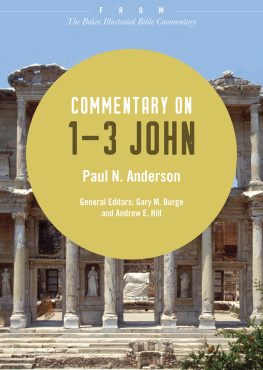John Galsworthy - A Commentary
Here you can read online John Galsworthy - A Commentary full text of the book (entire story) in english for free. Download pdf and epub, get meaning, cover and reviews about this ebook. year: 2022, publisher: BarnesNoble, genre: Detective and thriller. Description of the work, (preface) as well as reviews are available. Best literature library LitArk.com created for fans of good reading and offers a wide selection of genres:
Romance novel
Science fiction
Adventure
Detective
Science
History
Home and family
Prose
Art
Politics
Computer
Non-fiction
Religion
Business
Children
Humor
Choose a favorite category and find really read worthwhile books. Enjoy immersion in the world of imagination, feel the emotions of the characters or learn something new for yourself, make an fascinating discovery.
- Book:A Commentary
- Author:
- Publisher:BarnesNoble
- Genre:
- Year:2022
- Rating:3 / 5
- Favourites:Add to favourites
- Your mark:
- 60
- 1
- 2
- 3
- 4
- 5
A Commentary: summary, description and annotation
We offer to read an annotation, description, summary or preface (depends on what the author of the book "A Commentary" wrote himself). If you haven't found the necessary information about the book — write in the comments, we will try to find it.
A Commentary — read online for free the complete book (whole text) full work
Below is the text of the book, divided by pages. System saving the place of the last page read, allows you to conveniently read the book "A Commentary" online for free, without having to search again every time where you left off. Put a bookmark, and you can go to the page where you finished reading at any time.
Font size:
Interval:
Bookmark:
JOHN GALSWORTHY

This 2011 edition published by Barnes & Noble, Inc.
All rights reserved. No part of this publication may be reproduced, stored in a retrieval system, or transmitted, in any form or by any means, electronic, mechanical, photocopying, recording, or otherwise, without prior written permission from the publisher.
Barnes & Noble, Inc.
122 Fifth Avenue
New York, NY 10011
ISBN: 978-1-4114-3924-5
CONTENTS
A COMMENTARY
T HE old man whose call in life was to warn the public against the dangers of the steam-roller held a small red flag in his remaining hand, for he had lost one arm. His brown face, through whose leathery skin white bristles showed, had a certain dignity; so had his square upstanding figure. And his light grey eyes, with tiny pupils, gazed with a queer intentness, as if he saw beyond you. His clothes were old, respectable, and stained with grease; his smile shrewd and rather sweet, and his voiceof one who loved to talk, but whose profession kept him silentwas deliberate and sonorous, with a whistling lisp in it, because he had not many teeth.
"What's your opinion?" he said one summer morning. "I'll tell you my experience: a lot o' them that's workin' on road jobs like this are fellers that the Vestries takes on, makin' o' work for themthe lowest o' the low. You can't do nothing with them; here today and gone tomorrow. Lost dogs I call 'em. Most of them goes on the drink the moment they gets a chance, and the language that they'll useoh dear! But you can't blame them 's far as I can seethey're born tired. They ain't up to what's wanted of 'em nowadays. You might just as well put their 'eads under this steam-roller and 'ave done with it."
Then lowering his voice as though imparting information of a certain value: "And that's just what I think 's 'appened to them already; that great thing"he pointed to the roller"that great thing goes on, and on, and onit's gone over them! Life nowadays has got no more feelin' for a man than for a beetle. See the way the poor livelike pigs, crowded all together; to any one who knows, it's awful! An' moralssomething dreadful! How can you have morals when you've got to live like thatlet alone humanity? You can't, it stands to reason. Talk about democracygovernment by the people? There's no sense in it; the people's kept like pigs; all they've got 's like pig-wash thrown 'em. They know there's no hope for them. Why, when all's done, a working-man can't save enough to keep 'imself in his old age. Look at me! I've lost my arm, all my savin's was spent when I was gettin' well; I've got this job now, an' very glad to get itbut the time'll come when I'll be too old to stand about all weathers; what'll happen? I'll either 'ave to starve or go into the 'Ousewell, that's a miserable ending for a man. But then you say, what can you do? That's just itwhat can you do? Where's the money to come from? People say Parliament ought to find it, but I've not much 'opes of them; they're very slow. All my life I've noticed that. Very slow! Them fellers in Parliament, they've got their positions and one thing and another to consider, the same as any other people; they're bound to be cautious, they don't want to take no risks, it stands to reason. Well, that's all against reforms, I think. All they do, why it's no more than following after this 'ere roller, treadin' in the stones."
He paused, looking dubiously at the roller, now close at hand. "See what a lot o' things the money's wanted for. It's not only old-age pensions, there's illness! When I lost my arm, and lay there in the 'orspital, it worried me to think what I should do when I got output me in such a stew; well, there's thousands like thatpeople with consumption, people with bad blood'undreds an' thousands, that's got nothin' to fall back on; they're in fear all their time."
He came closer, and his voice seemed to whistle more than ever. "It's a dreadful thing, is fear. I thought that I'd come out a log, an' just 'ave to rot away. I've got no familybut them fellers in consumption with families an' all, it's an awful thing for them. Here's a carriageI mustn't get to talking!"
He moved forward to the barrier, and stood there holding up his flag. A barouche and pair came sweeping up; the sun shone on its panels, on the horses' coats, the buttons of the coachman, and the egrets in two ladies' hats. It swerved at sight of the red flag, and swung round the corner to the left.
The old man stood looking after it, and the silence was broken only by the crunching of the roller. Rousing himself from reverie, he said: "Fashion! D' you know, I can't tell what them sort of people think of all day long. It puzzles me. Sometimes I fancy they don't think at all. Thinking's all done for them!" And again he seemed to lapse into his reverie. "If you told them that they'd stare at you. Why, they fancy they're doin' an awful lot, what with their bazaars an' one thing an' another. Them sort of people, they don't mean any 'arm, but they 'aven't got the mind. You can't expect it of them, livin' their lives; you want a lot o' mind to think of other people."
Suddenly his eyes brightened. "Why, take them street-walkers you see about at night; now what d' you think ladies in their carriages thinks of themdirt! But them women 'alf the time's no worse than what the ladies are. They took their bit o' sport, as you may call itsame as lots o' ladies take it. That's where money comes inthey 'adn't the money to keep off the streets. But what are you to do? You can't have the creatures about." A frown came on his brow, as though this question had long been troubling him. "The rich," he went on, "are able for to educate their daughters, and look after them; I don't blame themit's human nature to do the best you can for your own family; but you've got to think of others that haven't got your moneyyou've got to be human about it. The mischief is, when a man's got money, it's like a wall between 'im an' 'is fellows. That's what I've found. What's your opinion? Look here! My father was a farm labourer, at eight shillin's a week, an' brought up six of us. And 'owever 'e managed it I don't know; but I don't think things are any better than they were thenI don'tI think they're worse. This progress, or what do they call it, is destroyin' of us. You can't keep it back, no more than you could keep back that there roller if you pushed against it; all you can do's to keep ahead of it, I suppose. But talk about people's increasin' in the milk of human kindnessI don't see it, nor intelligence. Look at the way they spend their 'olidaysit gives you stomach-ache to see them. All a lot o' rowdy fellers, never still a minute, that's lost all religiona lot o' town-bred monkeys. This 'ere modern life, it's hollowed of 'em out, that's what it's done, in my opinion. People's got so restless; they keep on tryin' first one thing and then another; anything so long as they can be doing something on their own. That's a fact. It's like a man workin' on a job like this road-mendin'; he just sees the stones he's puttin' down himself, and he don't see nothing else. That's what everybody's doin'. But I don't see how you can prevent it; it looks as if 't was in the blood. They talk about this Socialism; well, but I'm not very sweet on itit's mostly all a-lookin' after your neighbour, 's far 's I can see."
He paused, staring hard, as though trying to see further. "Well," he went on suddenly; "that won't work! Look at the policenever met such meddlesome creatures; very nice men in themselves, I dare say, but just because they've got a little power! And they're as thick as thieves together. Take these fellers that they send to prison; they talk about reformin' of them, but when they get them there it's all like that roller, crushin' the life outawful, I call it. Them fellers come out dead, with their minds squashed out o' them; an' all done with the best intentions, so they tell me. I tell you what I think, there's only one man in a 'undred fit to 'ave power over other men put in his 'ands. Look at the workhouseswhy ain't they popular? It's all because you've got to live by rule. I don't find no fault with rules so long as you don't order people about; what you want to do's to get people to keep rules of their own accordthat's what I think. But people don't look at it that way, 's far 's I can see. What's your opinion? Mind ye," he went on suddenly, "I'm not saying as there isn't lots o' things Government might do, that you'd call Socialism, I dare say. See the women in them slumspoor things, they can't hardly drag themselves along, and yet they breed like rabbits. I don't blame them, they don't know no better. But look 'ere!" and thrusting the handle of the flag into his pocket, he took a button of his listener's coat between his finger and his thumb; "I'd pass a law, I would, to stop 'em. That's going too far, you say! Well, but what's to be done? There's no other way, in my opinion. Then, of course, if you stop 'em, you won't 'ave none o' this cheap low-class labour. That won't please people. It's a difficult matter!"
Font size:
Interval:
Bookmark:
Similar books «A Commentary»
Look at similar books to A Commentary. We have selected literature similar in name and meaning in the hope of providing readers with more options to find new, interesting, not yet read works.
Discussion, reviews of the book A Commentary and just readers' own opinions. Leave your comments, write what you think about the work, its meaning or the main characters. Specify what exactly you liked and what you didn't like, and why you think so.









